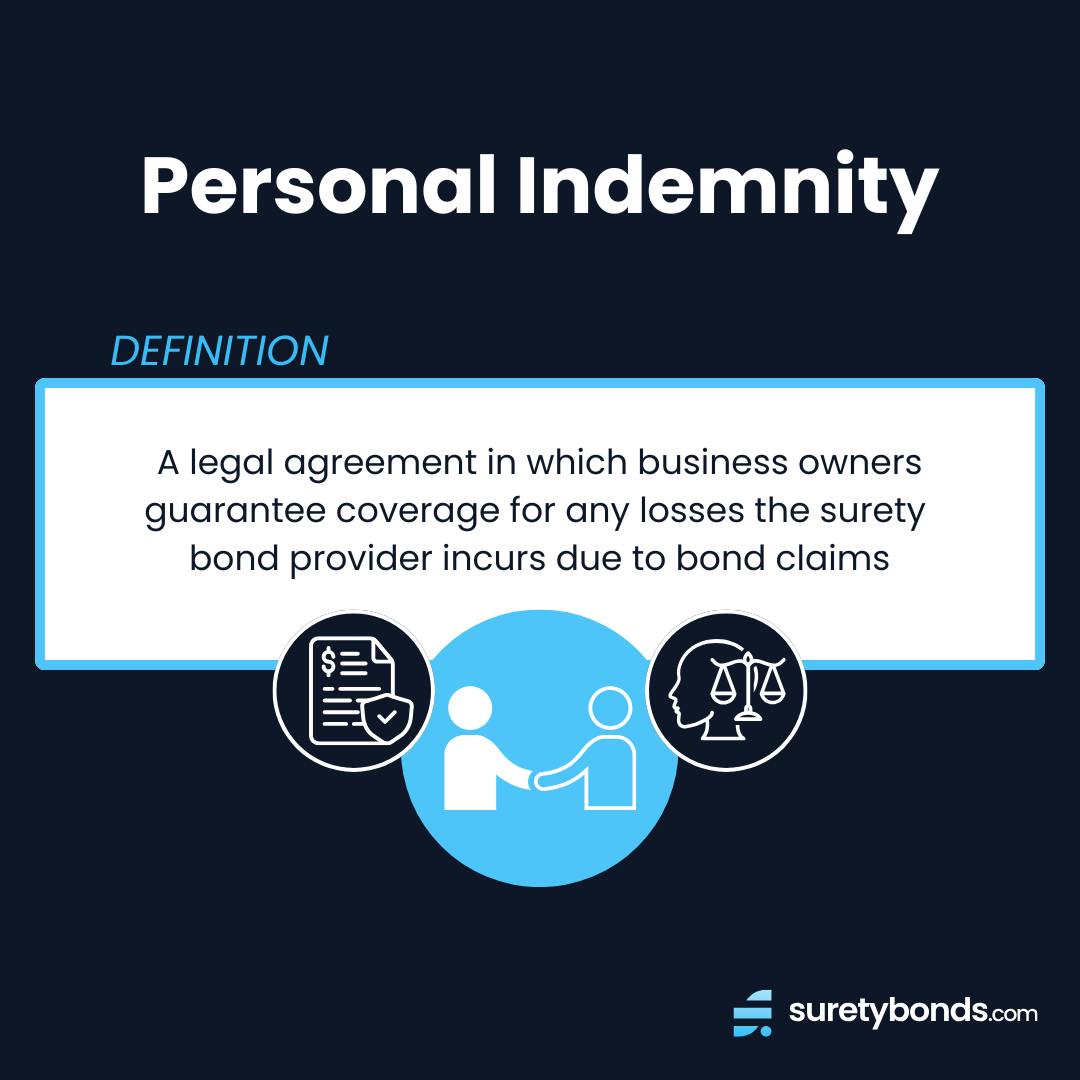At SuretyBonds.com, our goal is for each customer to make an informed bond purchase. Most bonds include a personal indemnity agreement that you’ll need to sign. Use this guide to understand what personal indemnity means and who is indemnified in a surety contract.
What Is Personal Indemnity?
Indemnity is a type of insurance that protects the insurer from losses. In the surety context, personal indemnity is a legal agreement in which parties agree to indemnify (compensate for loss) and reimburse the surety if damages incur. It’s a way to hold policyholders (principals) financially liable to the surety contract.

Why Do Surety Companies Require Personal Indemnity?
Personal indemnity is required because a surety bond is akin to extending a line of credit. If the principal fails to meet their obligations, the surety must pay out claims. It ensures that the surety can recover claims expenses, including legal fees and other related costs.
Which Bonds Require Personal Indemnity?
Indemnity bonds are not a distinct category of bonds, but refer to any surety bonds with supporting indemnity agreements. These agreements ensure that if the surety has to pay out a claim, the indemnitors are legally required and able to reimburse them in full.
Most surety bonds require personal indemnity. Common categories of indemnity bonds include:
- Bonds for Construction Projects: Contract bonds are common in construction projects to ensure adherence to project terms and conditions.
- Bonds for Business Licensing: License and permit bonds are required by government agencies for various business licensing processes.
- Bonds for Court Cases and Estates: Court bonds are used in legal proceedings to guarantee payment or performance.
How Do I Sign My Indemnity Agreement?
Signing an indemnity agreement involves three basic steps:
- Review: Carefully read the terms and obligations outlined in the indemnity agreement.
- Sign: Sign and date the agreement as indicated. If there are multiple indemnitors, each must sign. See below for more details.
- Submit: Provide the signed agreement to the surety provider along with the bond form.
Who Is Personally Indemnified in a Surety Bond Contract?
Any business owner with 10% or more stake in a company must be personally indemnified along with their spouses. Here’s who needs to sign the indemnity agreement based on your business structure:
- Sole Ownership: The applicant and spouse must sign as authorized representatives and individually.
- Partnership: An authorized partner must sign as the authorized representative and individually. All authorized partners and spouses must sign as well.
- Limited Liability Company: The managing member must sign as an authorized representative and individually. All members and spouses must also sign.
- Corporation: The president must sign as an authorized representative and individually. All owners with 10% stake and spouses must sign as well.
Spouses are indemnified to prevent business owners from illicitly transferring assets to their spouses’ accounts.
What Is Collateral Security?
Collateral security is an asset or property pledged as a guarantee against the bond obligation. If the principal defaults, the surety can claim the collateral to recover losses. In rare instances, upfront collateral is required along with personal indemnification, depending on the bond’s risk level and the principal's financial status.
How Does Real Property Assignment Differ From Personal Property Assignment?
Most general indemnity agreements include an assignment clause. This means the surety, as a last resort, can claim the real or personal property of the principal to recover damages. Here’s how the two differ:
- Real Property Assignment: Involves pledging real estate (such as land or buildings) as collateral. It is typically more secure due to the tangible nature and value of real estate.
- Personal Property Assignment: Involves pledging movable assets (such as vehicles or equipment). This is less secure compared to real property because personal property can depreciate and is harder to liquidate.
More Resources
Learn more about personal indemnity and surety bonds with our library of educational content:
